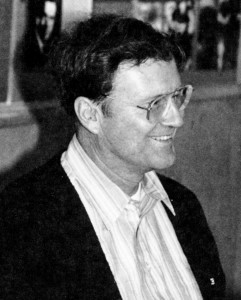 Featured Interview With Harold Titus
Featured Interview With Harold Titus
Tell us a little about yourself. Where were you raised? Where do you live now?
A graduate of UCLA, I am a retired English and American history teacher. I taught mostly eighth grade students in Orinda, CA for 31 years. I coached many of the school’s sports teams. For several years I taught a drama class that performed comedies I wrote that spoofed TV shows (“Little House on the Prairie,” “Batman”), novels (‘Shane,” “The Outsiders”) and middle school students and teachers in a fictitious school much like where I taught. I was born in New York State, lived two years in Tennessee, but was raised mostly in Pasadena, CA. I have lived in Florence, OR since 1996.
At what age did you realize your fascination with books? When did you start writing?
I believe the first novel I read was “Shasta of the Wolves,” about an Indian baby raised and protected by wolves, when I was in the fifth grade. Thereafter, into high school I read a lot of animal novels — Albert Payson Terhune’s dog stories and Jack London’s “Call of the Wild” and “White Fang.” I read Thomas Costain’s “The Black Rose” and “The Silver Chalice” in high school. A history major in college, fascinated by the Civil War, I read MacKinlay Kantor’s “Andersonville” and Michael Shaara’s “The Killer Angels,” both great books. Soon after graduating, I enjoyed reading “Raintree County” by Ron Lockridge, Jr. I wrote several short stories during my early teaching years that did not merit publication, but I enjoyed the challenge and experience. I wrote several bad chapters of a historical novel about Grant’s campaign at Vicksburg while I was in the army, between graduation from college and teaching in Orinda. I began my Revolutionary War novel “Crossing the River” several years after I retired from teaching in 1991. It was published in 2011.
Who are your favorite authors to read? What is your favorite genre to read. Who Inspires you in your writings?
I especially like Winston Graham (read all of his Poldark novels) and A. B. Guthrie, Jr. (read all of his novels of the West). These two authors’ style of writing has influenced me. Betty Smith and Jessamyn West are favorite female authors. I like James Alexander Thom’s novels about native Americans. Then there is John Steinbeck. Historical fiction obviously is my favorite genre.
Tell us a little about your latest book?
“Crossing the River” is about the beginning of the Revolutionary War: the Battles of Lexington and Concord and the retreat of the British army to Charlestown April 19, 1775. It narrates the internal conflicts, hubris, stupidity, viciousness, valor, empathy, and sacrifice of many of the historical day’s participants. It investigates simultaneously the cause and consequence aspects of high-risk decision-taking.
Three characters among many stand out.
Corporal John Howe is the personal servant of an infantry captain chosen to lead a two-officer spy mission to locate the stockpiled stores. Howe demonstrates useful attributes. Commanding General Thomas Gage pairs him with Colonel Francis Smith to conduct another covert reconnaissance. Howe completes the mission alone.
General Gage orders Howe to alert prominent Tories north of Boston of the intended Concord raid and then to ride to Concord to report what he has seen on the roads.
Howe is conflicted by his regard for Gage, his desire to achieve officer rank, his disdain for Tories and brutish army life, and his growing respect for independent-minded provincials.
Acton schoolmaster James Hayworth musters in the yard of his life-long friend and neighbor, Minuteman Captain Isaac Davis. Davis is the first man killed at Concord’s North Bridge. Enraged, Hayworth parallels the British army’s retreat, endeavoring to kill at every opportunity. Physically and emotionally spent, he rests beside a two-story, red-roofed house a mile west of Lexington.
The enormity of what he has committed overwhelms him. He longs for a return of normalcy. He wants to marry the remarkable young woman he covets. A looter leaves the house and disappears down the road. Leaving his place of safety to draw well water, James is challenged by a second looter.
Conniving Simon Winsett volunteers to be the third Lexington scout to ride down the moon-lit Menotomy road to locate General Gage’s advancing force. Rejected by his family and distrusted by most of the townspeople, Simon needs to demonstrate his core goodness. He is captured by the army’s advance scouts but later escapes.
Many other characters contribute to the tapestry of the day’s events. The novel took me, off and on, 17 years to write.
Connect with the Author on their Websites and Social media profiles